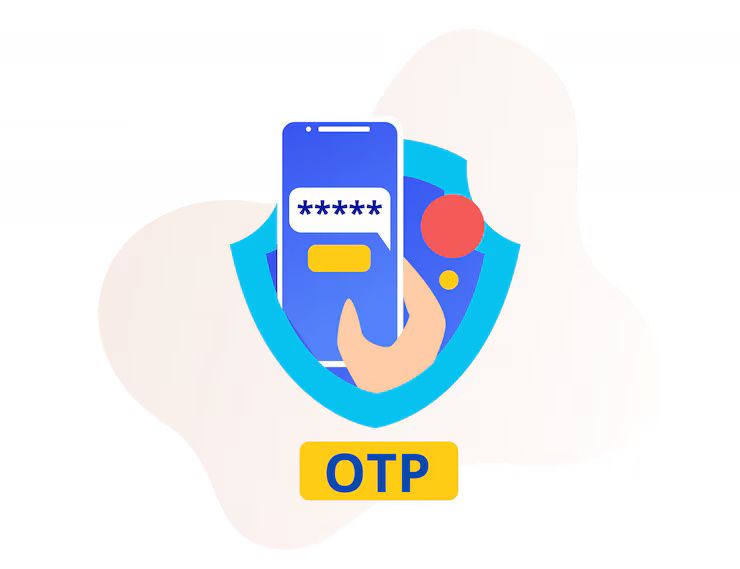Understanding WhatsApp OTP Verification API for Secure User Authentication
One Time Password (OTP) has become a widely used method to verify the user's identity on websites, apps and services. Traditionally, OTP is sent via SMS or e -mail, but when user behavior is changed and message apps that WhatsApp grows in popularity, companies take on using whatsapp OTP VIIA API as a fast and more reliable alternative.
With billions of people using WhatsApp daily, leveraging it for verification offers multiple advantages:

- High delivery rate: WhatsApp messages often have more open and distribution speeds than SMS.
- Low costs: It can be cheaper than traditional SMS, especially for international use.
- User known: Users are already used to interacting on WhatsApp, causing a smooth confirmation current.
- Fast confirmation: WhatsApp messages are usually transported early in many areas compared to SMS.
This solution is especially important:
- E-commerce platform
- Fintech and bank apps
- The apps of the health care system
- Government portal
- Academic platform
It solves problems:
- SMS OTP delivery delayed
- High Costs for SMS confirmation for global users
- Incorrect email-based verification
- Increasing concern about fishing and identity theft
Recent Updates – Trends and changes (as of 2024–2025)
- Meta's official Business API improvement: At the beginning of 2024, the Meta WhatsApp Business API improved to improve the message of message and allowed several cases such as verification and notice.
- 2FA integration with WhatsApp: Many platforms now integrate two-factor authentication (2FA) using WhatsApp as the second phase of verification.
- Compliance with template messages: Update in 2023-2024 introduced strict requirements for messages used in OTP flow, ensuring better security and user consent.
- Growing API supplier Systems: Platforms such as Twilio, Kalera, Vonj and Gupashp have expanded the WhatsApp OTP API support along with extra analysis and fraud detection.
Laws or Policies – How regulations affect WhatsApp OTP API usage
Governments and regulatory bodies around the world are quickly implemented digital secrecy and data protection standard
- GDPR (Europe): The user's consent is required before sending OTP and making secure handling of personal data compulsory.
- IT rules (India, 2021 and Updated 2023): Requirements to maintain user confirmation methods, end-to-end encryption and traceability.
- HIPAA (USA): Healthcare apps that use WhatsApp OTP will ensure that no protected Health Information (PHI) is divided under verification.
- WhatsApp Policy: Only approved ore messages can be used for verification, and companies must choose the official business of the META in APIs.
Before you distribute WhatsApp OTP verification, businesses
- Follow Privacy Policy
- Register Meta with WhatsApp Business API suppliers
- Make sure users are notified and the ability to receive the message is selected
Tools and Resources – Helpful APIs and services
Here are some reliable tools and platforms that provide WhatsApp OTP verification features:
| Tool/Service | Description | Features |
|---|---|---|
| Twilio | Trusted cloud communications platform | Pre-approved templates, SDKs |
| Gupshup | Leading WhatsApp API provider in Asia | Bulk messaging, fast setup |
| 360dialog | Official Meta BSP for WhatsApp API | Easy onboarding, verification API |
| MessageBird | Omnichannel communication platform | Secure APIs, dashboard analytics |
| Kaleyra | Global API provider for WhatsApp and SMS | Custom flows, developer-friendly |
| Vonage (Nexmo) | Trusted API platform with WhatsApp support | End-to-end encryption, logs |
| WATI | Focused on SMBs for WhatsApp Business | Easy-to-use dashboard and bot |
Additional resources:
-
WhatsApp Business API documentation (Meta)
-
Postman collections for testing OTP flows
-
Firebase Authentication (can be extended to use WhatsApp)
-
Custom SDKs from API providers
FAQs – Frequently asked questions
What is WhatsApp OTP Verification API?
It’s an API that allows corporations to send one-time passwords (OTPs) thru WhatsApp for verifying customers all through login, signal-up, or transactions.
Is WhatsApp OTP extra steady than SMS?
Yes. WhatsApp uses quit-to-give up encryption, making it greater steady than traditional SMS, which can be intercepted or spoofed.
Do customers want to store a range of to obtain OTPs?
No. OTP messages are despatched via established WhatsApp Business accounts. Users best need an active WhatsApp account with internet access.
Is it legal to ship OTPs through WhatsApp?
Yes, in case you observe WhatsApp's commercial enterprise messaging guidelines and nearby statistics privateness regulations like GDPR, CCPA, or India's IT Act.
What takes place if the consumer has no internet get entry to?
Unlike SMS, WhatsApp requires internet access. You should always have a fallback verification method like SMS or email for offline eventualities.
Final Thoughts
WhatsApp OTP verification represents a modern and effective method of user verification in the API digital age. This increases safety, improves the user experience and can reduce costs. However, to implement it in a responsible manner, companies must stay in accordance with data privacy rules, use authorized message templates and ensure that users have agreed on communication.
